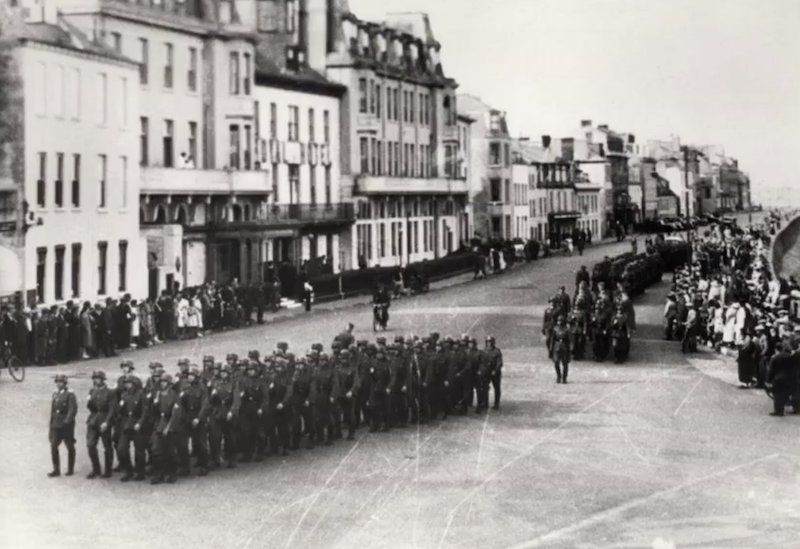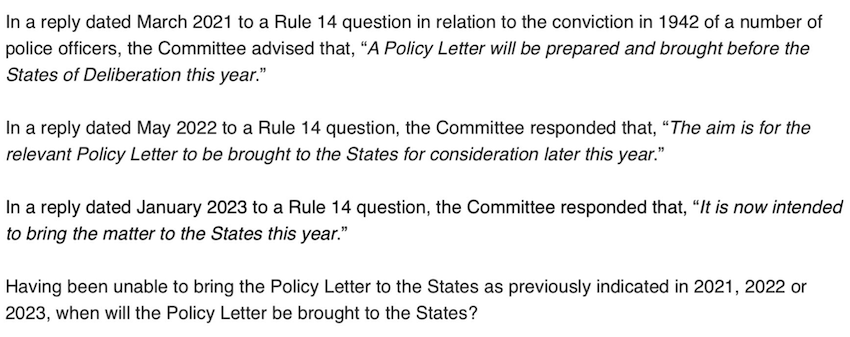


Policy & Resources has failed to come up with an answer on how to secure justice for those wrongly punished by the courts during the Occupation more than three years since promising to do so.
In March 2021 it pledged to release a policy letter for debate that year, in May 2022 it said it would be later that year, and in January 2023 it said it would be this year.
The senior committee is being asked again in an official question by Deputy Gavin St Pier when it will happen.
“They have been promising a policy letter on pardons for wartime injustices for each of the last three years and it’s still not appeared,” said Deputy St Pier on X.
“When (or will it ever) appear? I’ve not forgotten and I’ll keep pressing.”

Pictured: Deputy Gavin St Pier's latest official question to P&R.
When pressed on the issue of providing for statutory pardons for certain criminal convictions during the Occupation including those secured against a number of police officers in 1942, P&R has previously said this is one option being considered, but not the only one.
“A statutory pardon would require a number of complex constitutional and legal issues to be overcome, which may take significant time and resources to deal with if supported by the Assembly,” P&R’s President Deputy Peter Ferbrache said in an official written answer in November 2021.
“Other options, such as a Resolution or statement by the States of Deliberation, may provide an alternative which carries sufficient political weight to address the issue for the relatives concerned, and the wider community, and which may be more expedient.”
During the Occupation of Guernsey, the “Robin Hood” policemen, were convicted of stealing food from the Germans to feed the island's civilians.
Constables Kingston Bailey and Frank Tuck were the first to engage in this act of resistance, inspired by BBC broadcasts that provided instructions on how to undermine the occupiers.
They started stealing food from the Germans to share with those in need, and their actions eventually led to the involvement of nearly the entire police force.
They broke into the occupiers' stores at night and distributed the food to the hungry civilians.
The policemen were eventually caught and 17 brought before the German Military Court and Guernsey’s Royal Court. Sixteen were sentenced to deportation to brutal labour camps in Nazi-occupied Europe.
Not all of the policemen survived their ordeal and those who returned home at the end of the war were often suffering from debilitating diseases and life-changing injuries, yet they were treated as criminals and denied their pensions.
Comments
Comments on this story express the views of the commentator only, not Bailiwick Publishing. We are unable to guarantee the accuracy of any of those comments.